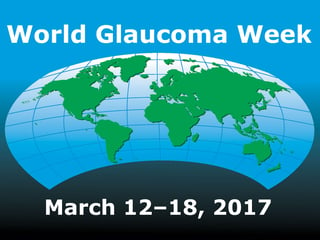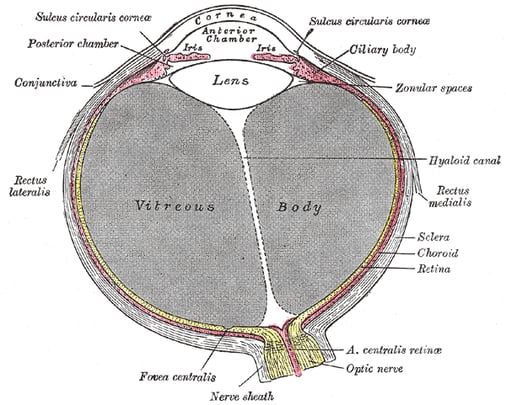- Privacy Policy
- Terms & Conditions
- Contact us
- ©Isabel Healthcare 2025
Don’t Ignore Your Eye Health | World Glaucoma Week
 All this week is World Glaucoma Week, helping to raise awareness of the irreversible and untreatable disease of the eye. As glaucoma has no cure, it is very important to spread awareness to prevent glaucoma developing in the first place. Here at Isabel we’re always stressing the importance of knowing your body and your symptoms, and having the confidence to talk to a healthcare professional if something doesn’t feel quite right. Eye care is possibly one of the most important and sometimes overlooked elements of your personal health, and many eye diseases can be prevented if you just get them checked out regularly. In this blogpost we discuss general eye health, and some of the diseases, like glaucoma, which can be prevented when caught early.
All this week is World Glaucoma Week, helping to raise awareness of the irreversible and untreatable disease of the eye. As glaucoma has no cure, it is very important to spread awareness to prevent glaucoma developing in the first place. Here at Isabel we’re always stressing the importance of knowing your body and your symptoms, and having the confidence to talk to a healthcare professional if something doesn’t feel quite right. Eye care is possibly one of the most important and sometimes overlooked elements of your personal health, and many eye diseases can be prevented if you just get them checked out regularly. In this blogpost we discuss general eye health, and some of the diseases, like glaucoma, which can be prevented when caught early.
A Healthy Eye
If you can cast your mind back to that science lesson when you were 10, when the functions of the eye were explained to you, then you will be one step ahead here. For the rest of us, the diagram from Gray’s Anatomy below shows the different elements of a healthy eye. Essentially, light travels in through the pupil, the size of which is determined by the eye, then passes through the lens which focusses the light onto the retina. The retina contains chemicals which react when light hits them, causing electrical signals. These signals are sent up the optic nerve to the brain, where the brain takes over and converts the signals into a cohesive ‘picture.’ The cornea, along with the sclera or white of the eye, is there for protection of the delicate workings inside. The vitreous body and anterior chamber are filled with transparent liquid to keep the shape of the eyeball, whilst remaining clear so light can pass through and to the retina.

The Human Eye, from Gray's Anatomy, 1918, sourced here.
Common Eye Diseases
Cataracts
Cataracts are common in those over the age of 60 and can begin developing in your 40's so you should be aware. It is defined by a ‘clouding of the lens’ and occurs when the proteins in the lens, which allow light to pass through a healthy eye, begin to clump together and cause the once transparent lens to become cloudy. Cataracts are easily treatable these days, involving a procedure where the cloudy lens is removed and replaced with an artificial lens. Risk factors for developing the condition include age, diabetes, or trauma to the eye either through injury or other operations which can all accelerate the process. For this reason, leading a healthy lifestyle and getting your eyes regularly checked can help prevent the onset of cataracts. Symptoms of cataracts include:
- your eye not feeling ‘quite right’ or feeling irritated
- blurriness in your vision
- a yellow or sepia tinge to your vision
- increased sensitivity to light
Reginitis Pigmentosa
There are several types of reginitis pigmentosa, or RP, but they are all conditions which affect the retina in the eye. The cells which contain the retina chemicals mentioned above are called photoreceptors, and in RP, these cells become damaged, and eventually die off. This causes the sight to become progressively worse, usually starting in the outer regions of your field of view and closing in, as more and more photoreceptors are unable to process the information sent to them Almost all cases of RP are inherited through genes, and as such there is little that can be done to prevent the onset if not caught extremely early, and there is very few treatments to help symptoms once the disease has taken hold. That is why it is so important to have regular checkups and specific testing if there is a family history of RP in your relations. To make it even more complicated, cases of RP usually have very few recognisable symptoms early on, and it is only when you lose some of your sight that the disease is diagnosed. Some less noticeable symptoms, which usually occur between the ages of 10-30, are:
- night blindness - difficulty in seeing things in dim light, especially at nighttime
- difficulty in seeing detail, such as threading a needle
- Blurring in the peripheral field of vision
Glaucoma
Glaucoma is another umbrella term, referring to inherited diseases which affect the optic nerve instead of the retina. The optic nerve is sometimes weakened, and becomes damaged, and is unable to process retina images as efficiently. Glaucoma is also caused by increased pressure in the eye, placing undue pressure on the optic nerve and stopping it working properly. Similar to RP, most cases of glaucoma show no early symptoms, so regular checks are crucial. If detected, eye drops can halt the onset of vision loss, and patients can lead healthy lives will full sight for many more years. However, once some vision has been lost, that sight cannot be cured and regained in any way, although further deterioration can be stopped. Glaucoma week is all about informing people of these critical facts, because if it can be spotted early in a checkup, the impact of having glaucoma can be greatly reduced.
You can learn more about World Glaucoma week and what you can do to help here. If you are concerned about any of the symptoms discussed in this post, or feel something is not quite right, then place your symptoms in the Isabel Symptom Checker and visit your optician or doctor to discuss the results.

Mandy Tomlinson
Mandy has worked for Isabel Healthcare since 2000. Prior to this, she was a Senior Staff Nurse on the Pediatric Infectious disease ward and high dependency unit at one of London's top hospitals, St Mary’s in Paddington which is part of Imperial College Healthcare NHS Trust. Her experience in the healthcare industry for the past 33 years in both the UK and USA means she's a vital resource for our organization. Mandy currently lives and works in Scottsdale, Arizona.
Subscribe Here!
Recent Posts
Isabel DDx Companion with ChatGPT Integration - to help you diagnose even faster
At Isabel Healthcare, we’ve always been driven by one goal: to make clinical reasoning faster,..Virtual Triage: Do more questions lead to better patient outcomes?
One of the common misconceptions related to virtual triage / symptom checker tools is that the more..List Of Categories
- Differential Diagnosis Decision Support
- Differential diagnosis
- Symptom Checker
- Symptoms
- Medical Error
- Patient Disease Information
- Disease
- Clinical Decision Support
- Diagnostic Decision Support
- Isabel 1 Minute Read
- Diagnosis Error
- Diagnosis Skills Cases
- Healthcare Informatics
- Clinical Reasoning
- Evidence-based Medicine
- Medical Education
- Patient Engagement
- Symptom Triage
- Nurse Practitioner Education
- Nursing Decision Support
- Partnership
- Public Health
- COVID-19
- EHR
- Patient Empowerment
- Patient Safety
- rare disease

Start your FREE Trial today
Try the Isabel Pro DDx generator for 30-days - no payment card details required.




